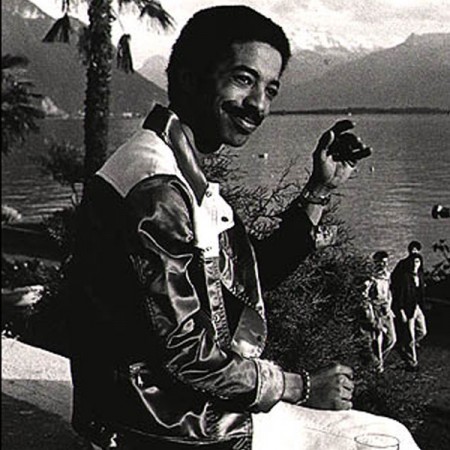
Tony Williams
(Photo: DownBeat Archives)DB: The Bad Drummer Ordinance?
TW: Exactly. Anyone who does not study is shot! Seriously, though, it’s a big responsibility when you play the drums, and a lot of guys don’t want the responsibility, but they want to play the drums. The drummer is playing all the time. You can have a terrible band and a great drummer, and you’ve got a good band; but you could have great horn players, and if the drummer and the bass player aren’t happening, you’ve got a terrible band.
DB: Is tuning important?
TW: Yes. I hear drummers that have maybe 12 drums which all sound the same. If you closed your eyes, you wouldn’t know where they were on the set. Or else you’ll have guys where each drum sounds like it’s from a different set. It’s important that the drum set sounds like one instrument. Like, if you have a piano, you wouldn’t want the C to sounds like a Rhodes, the D to sound like a Farfisa, the E to sound like a Prophet. A keyboard is a uniform system; a trumpet is a uniform system … drummers are out to lunch. On some of my drums, the bottom head is tighter than the top head. On other drums they’re about the same. And on the bass drum the front head is looser than the batter side.
DB: Have you tried electric drums?
TW: Yeah! I tried the Simmons. The separation you get on tape is great. The programmability, the sound, the sequencing … it’s another thing to do that seems very interesting. I have a DMX [electronic, programmable drum machine by Oberheim] at home.
DB: Will electronic drums be part of what you’re doing in the studio?
TW: Oh yeah, they already are.
DB: Can you say anything more about what direction your music is going?
TW: The popular direction. I like MTV. I like the Police, Missing Persons, Laurie Anderson. I performed with her on a San Francisco date. It was great. I love the new Bowie album. Prince. I like the idea of writing lyrics, of putting images with words that evoke a scene on top of the music. I like Herbie’s new album. It’s really happening.
DB: Are you interested in making a video yourself?
TW: Sure. Growing up in this country, watching TV and movies, everyone would like to make a movie. It’s a new thing to do. You know writers want to be painters; screenwriters want to be directors. Musicians want to make movies. Doing a project and having a lot of people like it and maybe listen to it on the radio, that appeals to me. What I’m trying to do is something that captures a lot of people’s imaginations. If the result is I’m more famous, fine. But it’s not like I’m after being a pop star.
DB: You’ve said in the past that jazz should be popular, not an elitist art form. But isn’t it about time Americans claimed jazz as their art form and started recognizing it with the kind of respect they give European music?
TW: That’s a fine thought, but how much is that really going to do for musicians? I don’t think society really recognizes classical music, anyway. It’s all about patronage, and grants, a certain class of people. Jazz was originally the music of the people in the streets and not in concert halls, so when you lose that, you suffer the consequences. There’s nothing wrong with jazz being an art form, but it has certain roughness and vitality and unexpectedness that’s important. I guess I’m old-fashioned. DB